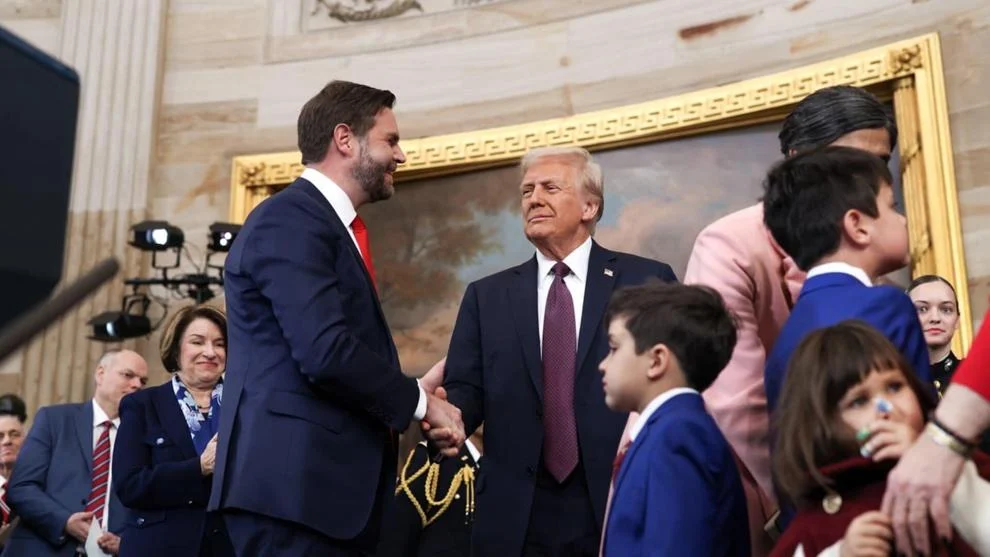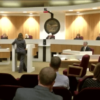Will DOGE vindicate Iowa’s former Rep. H.R. Gross?

With the creation of the Department of Government Efficiency (DOGE) under the leadership of entrepreneur Elon Musk, President Donal Trump has unleashed a major effort to identify government waste and inefficiency. With a $36 trillion national debt and large budget deficits, government spending is out of control. The mission of DOGE serves as a reminder of former Rep. H.R. Gross, who spent his career fighting to restrain government spending. Gross was a true “budget hawk.”
Many Iowans may not remember H.R. Gross. Gross represented Iowa in the United States House of Representatives from 1949-1975. As a Republican member of Congress, Gross earned a reputation of not only being hard working, but also a fierce fiscal conservative and an isolationist when it came to foreign policy.
Within the first few weeks of the Trump administration, DOGE has “identified and cut more than $1 billion” across multiple agencies. Musk has established a goal of $2 trillion in spending cuts. An area that is generating controversy is in the Trump administration’s scrutiny over foreign aid, and specifically DOGE examining USAID.
The U.S. Agency for International Development (USAID) has been frozen and may be eliminated. The Trump administration has placed a freeze on foreign aid and believes that USAID needs to be held accountable. U.S. Sen. Joni Ernst, who chairs the Senate DOGE Caucus, describes USAID as a “rogue agency.”
“I’ve uncovered that the agency often acts at odds with our nation’s best interests and uses intimidation and shell games to hide where money is going, how it’s being spent and why,” wrote Ernst. Further, Ernst argues that USAID needs greater oversight and accountability, and many programs have brought serious questions as to how the funds were utilized.
The debate over foreign aid and USAID is similar to the debates that Gross engaged in as a member of Congress. Gross joined with other conservatives in opposing foreign aid. Whether it was the United Nations, the Peace Corps, or other foreign aid programs, Gross believed that these were not only wasteful spending, but also not in the national interest. He also opposed military intervention in both Korea and Vietnam.
“During the Cold War, conservative Republicans asserted that such aid wasted taxpayer dollars, subsidized authoritarian rulers, undermined a global order built on national sovereignty, and left Washington bogged down in foreign lands,” wrote Brandon Buck, a Research Fellow at the CATO Institute.
Gross also opposed what he considered to be extravagant domestic spending, and it did not matter if it was a Republican or Democrat administration. He opposed President Lyndon B. Johnson’s Great Society and “in each Congress in which he served, Gross introduced legislation requiring a balanced federal budget and the gradual repayment of the national debt.”
As a defender of limited government, he was called “the taxpayer’s best friend” and “the watchdog of the Treasury.” Gross was also respected as a legislator, and he was referred to as the “Congressional conscience.”
In his office, Gross had a framed quotation that reflected his fiscal conservatism: “Nothing is easier than the expenditure of Public money. It does not appear to belong to anybody. The temptation is overwhelming to bestow it on somebody,”
At the time of his death, The New York Times wrote that the conservative Gross “was widely known for his tight-fisted approach to fiscal matters and his strong isolationist views on foreign policy.”
Through six presidential administrations, Gross fought for limited government and a restrained foreign policy. President Ronald Reagan, who once worked with Gross at WHO radio, said that he “met his responsibilities with care, wisdom, and old-fashioned common sense.”
Gross would most likely be appalled about the size of the national debt and the largess of the federal government, along with the numerous foreign entanglements that the United States is involved with. He reflected a more traditional “old right” conservatism that was closer to Sen. Robert A. Taft, but nevertheless he would welcome the current efforts to limit government.
John Hendrickson serves as policy director for Iowans for Tax Relief Foundation







